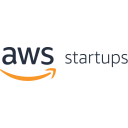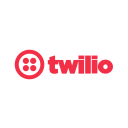AWS vs Twilio: Which one is right for your business?
- 01AWS Activate vs Twilio: overview
- 02What's the difference between AWS Activate and Twilio?
- 03AWS Activate pros and cons
- 04Twilio pros and cons
- 05AWS Activate compared to Twilio
- 06Twilio compared to AWS Activate
- 07Features comparison
- 08AWS Activate vs Twilio: Which is the best for your business?
- 09Promotions on Cloud Computing software
- 10Alternatives to AWS Activate & Twilio
Save up to $300,000 on AWS Activate
Save up to $300,000 on AWS Activate
Choosing the right cloud service provider is crucial for optimizing your business operations, enhancing communication, and ensuring scalability. These services can streamline your infrastructure, improve application performance, and provide robust security features. Moreover, they support diverse functionalities ranging from storage and computing to real-time communication and application development.
Various cloud service providers are available—how do you choose the best one for your business needs? In this article, we help you out by providing a detailed comparison of two leading cloud service providers, AWS and Twilio. By examining their main features and fundamental differences, you’ll feel more confident in making the right decision for your business.
AWS Activate vs Twilio: overview
AWS and Twilio are two prominent players in cloud computing software, each offering unique advantages tailored to meet specific user requirements.
AWS (Amazon Web Services) is widely recognized for its extensive suite of cloud computing capabilities, making it a go-to solution for businesses seeking comprehensive infrastructure and platform services. Twilio, on the other hand, specializes in cloud communications, providing a powerful platform for integrating messaging, voice, video, and authentication services into applications. Twilio is ideal for businesses focused on enhancing customer communication and engagement.
To make an informed decision between AWS and Twilio, it's crucial to consider your specific business needs, technical requirements, and long-term goals. AWS may be the ideal choice for organizations requiring a versatile and comprehensive cloud infrastructure capable of supporting a broad range of applications and services. In contrast, Twilio offers specialized communication solutions, making it suitable for businesses aiming to enhance their customer interaction capabilities with minimal development overhead.
What's the difference between AWS Activate and Twilio?
AWS (Amazon Web Services) and Twilio are versatile cloud platforms offering unique approaches to enhancing communication, scalability, and operational efficiency. As you navigate the decision-making process, understanding these differences can help guide you toward the most suitable platform for your business needs.
AWS is a comprehensive cloud service provider known for its wide array of cloud computing, storage, and database solutions. It's designed to cater to various industries, from startups to large enterprises, offering unparalleled scalability and reliability. AWS excels in providing a robust infrastructure that supports machine learning, analytics, IoT, and more. Its extensive services include EC2 for computing power, S3 for storage, and RDS for database management, making it ideal for businesses that need a versatile, all-encompassing cloud environment. AWS is also popular for its advanced security features, compliance certifications, and global network of data centers.
Twilio, in contrast, focuses on cloud communications, providing APIs for integrating messaging, voice, video, and authentication services into applications. Twilio is designed for businesses that prioritize customer communication and engagement. It simplifies the integration of communication tools, allowing developers to add functionalities like SMS, phone calls, and video conferencing with minimal effort. Twilio’s strength lies in its ability to enhance real-time communication, making it a preferred choice for customer service, marketing, and user authentication applications.
Another key difference is the range of services each platform offers. AWS provides a vast ecosystem of services suitable for building and maintaining complex applications, while Twilio specializes in enhancing communication capabilities within applications. AWS's services cater to a broad spectrum of use cases, including high-performance computing and big data analytics. Twilio, however, excels in scenarios requiring seamless communication and interaction with customers.
If you're considering cost and scalability, both platforms offer flexible pricing models that can scale with your business. AWS provides a pay-as-you-go model with detailed cost management tools, whereas Twilio offers a usage-based pricing model, ensuring you only pay for what you use.
20-50% off your monthly spend and up to $2,000 in credits on AWS Activate
Get 20-50% off your monthly spend and up to $2,000 in credits on AWS Activate and up to $300,000 savings with Secret.
AWS Activate pros and cons
What are the advantages of AWS Activate?
- Scalability: AWS offers extensive scalability options, allowing businesses to easily scale up or down based on demand. This flexibility is ideal for growing businesses and those with fluctuating workloads.
- Comprehensive service range: AWS provides a vast array of services, including computing power (EC2), storage (S3), databases (RDS, DynamoDB), machine learning (SageMaker), and more. This wide range of services can meet diverse business needs.
- Global infrastructure: With data centers located around the world, AWS offers global reach and high availability, ensuring low latency and reliable performance for users across different regions.
- Security and compliance: AWS emphasizes security and compliance, offering numerous certifications and compliance programs (such as ISO 27001, SOC 1/2/3, and GDPR). Their robust security features include encryption, identity and access management, and more.
- Innovation and updates: AWS continually innovates and updates its services, often being a market leader in introducing new technologies and features. This keeps businesses at the forefront of technology advancements.
What are the disadvantages of AWS Activate?
- Complex pricing: The pricing model of AWS can be complex and difficult to understand. With numerous services and different pricing tiers, businesses might find it challenging to predict costs accurately.
- Steep learning curve: AWS offers a wide range of services and features, which can be overwhelming for beginners. The steep learning curve requires significant time and resources to master.
- Cost management: While AWS provides cost management tools, managing and optimizing costs can be difficult, especially for businesses that use multiple services. Unmonitored usage can lead to unexpectedly high bills.
- Service limitations: Despite its extensive offerings, AWS might have limitations in certain niche areas or specific use cases. Some businesses may find that certain AWS services do not fully meet their unique requirements.
- Vendor lock-in: Once heavily invested in AWS infrastructure and services, businesses might find it difficult to switch to other providers due to the time and cost involved in migrating data and applications. This can lead to vendor lock-in.
Compare AWS Activate to other tools
Twilio pros and cons
What are the advantages of Twilio?
- Easy integration: Twilio offers straightforward APIs that make it easy to integrate communication features such as SMS, voice, video, and authentication into existing applications. This simplicity is a major advantage for developers looking to quickly add communication capabilities.
- Scalability: Twilio's infrastructure is designed to scale with your business. Whether you need to handle a few communications or millions, Twilio can accommodate growth without compromising performance.
- Global reach: Twilio supports communication in over 180 countries, providing a global reach that allows businesses to connect with customers around the world. This is particularly beneficial for businesses with international operations.
- Robust documentation and support: Twilio offers comprehensive documentation, tutorials, and a supportive developer community. This makes it easier for developers to get started and troubleshoot issues.
- Flexibility and customization: Twilio's platform is highly flexible, allowing for extensive customization to meet specific business needs. You can tailor communication workflows and features to suit your particular use case.
What are the disadvantages of Twilio?
- Cost: While Twilio offers a pay-as-you-go pricing model, costs can add up quickly, especially for high-volume usage. Businesses need to carefully monitor their usage to avoid unexpected expenses.
- Complexity for advanced features: While basic integrations are straightforward, implementing more advanced features and customizations can become complex and may require significant development resources and expertise.
- Dependence on internet connectivity: Twilio's services rely on internet connectivity. Any disruptions in internet service can impact the performance and reliability of communication features.
- Limited built-in features: Twilio provides powerful APIs but offers fewer built-in features compared to some other communication platforms. Businesses may need to build additional functionalities themselves, which can increase development time and costs.
- Vendor lock-in: As with many specialized platforms, once a business deeply integrates Twilio into its operations, switching to another provider can be challenging and resource-intensive, leading to potential vendor lock-in.
Compare Twilio to other tools
AWS Activate compared to Twilio
AWS and Twilio cater to different aspects of cloud services, with AWS providing a comprehensive suite of cloud computing, storage, and database solutions suitable for a wide range of industries. It excels in scalability, global reach, and a broad array of services, making it ideal for businesses requiring extensive infrastructure and advanced capabilities.
Twilio, on the other hand, specializes in cloud communications, offering APIs for messaging, voice, video, and authentication. Twilio's strength lies in its easy integration and focus on enhancing customer communication. While AWS offers versatile cloud solutions, Twilio excels in communication services, addressing specific business needs.
Is AWS Activate better than Twilio?
AWS and Twilio serve distinct purposes in the cloud services landscape, making it difficult to declare one as universally better than the other. AWS excels in providing a comprehensive suite of cloud computing, storage, and database solutions, making it ideal for businesses needing extensive infrastructure and advanced capabilities. It offers unparalleled scalability, global reach, and a broad array of services, catering to various industries.
Twilio, however, specializes in cloud communications, offering APIs for messaging, voice, video, and authentication. Its strength lies in easy integration and enhancing customer communication. Therefore, the choice depends on whether a business needs robust cloud infrastructure (AWS) or specialized communication services (Twilio).
What is AWS Activate best used for?
AWS is best used for providing scalable and reliable cloud infrastructure, supporting a wide array of applications and services across various industries. It excels in offering extensive computing power, storage solutions, and database management, making it ideal for hosting websites, running enterprise applications, and managing big data analytics.
AWS is also renowned for its advanced services in machine learning, IoT, and serverless computing, enabling businesses to innovate and deploy solutions quickly. Additionally, its global network of data centers ensures low latency and high availability, making AWS a preferred choice for companies looking to enhance their operational efficiency and expand globally.
Can AWS Activate replace Twilio?
AWS cannot directly replace Twilio as they serve different primary functions. AWS is a comprehensive cloud service provider offering extensive computing, storage, and infrastructure capabilities, suitable for a wide range of applications and services.
Twilio, on the other hand, specializes in communication services, providing APIs for messaging, voice, video, and authentication. While AWS offers some communication services through its products like Amazon SNS and Amazon Connect, they do not provide the same level of specialization and ease of integration as Twilio. Therefore, AWS and Twilio are often used complementarily rather than as direct substitutes.
Is AWS Activate cheaper than Twilio?
Determining whether AWS is cheaper than Twilio depends on the specific services and usage patterns involved. AWS offers a wide range of services with varied pricing models, often based on usage, storage, and data transfer rates, with estimates available from AWS’s pricing calculator. Twilio's pricing is also usage-based but focuses on communication services such as messaging, voice, and video.
For general cloud infrastructure needs, AWS might be more cost-effective due to its broader service offerings and economies of scale. However, for specialized communication services, Twilio might provide more cost-efficient solutions.
Is there a better Cloud Computing software than AWS Activate?
While AWS offers an extensive range of cloud computing, storage, and infrastructure services, it's important to explore alternative software options to ensure you find the best fit for your specific requirements.
Several notable alternatives to AWS in the cloud services space include Microsoft Azure, Google Cloud Platform (GCP), IBM Cloud, and Oracle Cloud.
The choice of the ideal cloud service provider depends on your organization's unique needs, including scalability, cost, service offerings, and regional availability. If you prioritize a comprehensive ecosystem, strong security, and global reach, AWS may be a strong contender.
20-50% off your monthly spend and up to $2,000 in credits on AWS Activate
Get 20-50% off your monthly spend and up to $2,000 in credits on AWS Activate and up to $300,000 savings with Secret.
Twilio compared to AWS Activate
Twilio and AWS serve different primary functions within the cloud services ecosystem. Twilio specializes in communication APIs, offering seamless integration for messaging, voice, video, and authentication services, making it ideal for enhancing customer interactions and real-time communications.
AWS, on the other hand, provides a comprehensive suite of cloud computing, storage, and database solutions suitable for diverse applications across various industries. While AWS offers some communication capabilities through services like Amazon Connect, it does not match Twilio's specialized focus. Therefore, Twilio excels in communication services, whereas AWS is best for extensive cloud infrastructure and advanced computing needs.
Is Twilio better than AWS Activate?
Twilio is better than AWS for businesses specifically seeking to enhance their communication capabilities. Twilio excels in providing seamless APIs for messaging, voice, video, and authentication services, making it ideal for real-time customer interactions and communication-focused applications. Its ease of integration and specialized communication tools offer a significant advantage for businesses looking to implement robust communication features quickly and efficiently.
While AWS does provide some communication services, it does not match the specialized focus and ease of use that Twilio offers in this domain. Therefore, for dedicated communication solutions, Twilio outperforms AWS.
What is Twilio best used for?
Twilio is best used for enhancing communication capabilities within applications through its robust APIs for messaging, voice, video, and authentication services. It enables businesses to seamlessly integrate SMS, phone calls, video conferencing, and two-factor authentication into their platforms, significantly improving customer engagement and real-time communication.
Ideal for customer service, marketing, and user verification processes, Twilio's flexible and scalable solutions cater to businesses of all sizes. Its ease of integration and global reach make it a preferred choice for developers looking to add sophisticated communication features without the complexity of building and maintaining the underlying infrastructure.
Can Twilio replace AWS Activate?
Twilio cannot replace AWS as they serve fundamentally different purposes. Twilio specializes in communication services, providing APIs for messaging, voice, video, and authentication, which are essential for enhancing customer interactions and real-time communication within applications.
AWS, however, is a comprehensive cloud service provider offering a wide range of services, including computing power, storage, databases, and machine learning, suitable for building and managing extensive cloud infrastructures. While Twilio can integrate with AWS to add communication capabilities, it lacks the broad infrastructure and service offerings needed to function as a standalone replacement for AWS's extensive cloud computing ecosystem.
Is Twilio cheaper than AWS Activate?
Determining whether Twilio is cheaper than AWS depends on the specific services and usage requirements. Twilio's pricing is based on usage for communication services such as messaging, voice, and video, often offering cost-effective solutions for businesses focused on enhancing communication.
AWS, with its extensive array of services including computing, storage, and databases, also uses a pay-as-you-go model but can become expensive depending on the scale and complexity of the infrastructure needed. For communication-specific needs, Twilio may be more economical. However, for broader cloud infrastructure requirements, AWS might provide better value through its comprehensive service offerings.
Is there a better Customer Experience software than Twilio?
While Twilio offers robust communication APIs for messaging, voice, video, and authentication services, it's wise to explore alternative software options to ensure you discover the best fit for your specific needs.
Several noteworthy alternatives to Twilio in the communication services space include Vonage API, Plivo, Sinch, and Bandwidth.
The selection of the ideal communication software depends on your organization's unique requirements, integration preferences, and budget. If you value ease of integration, scalability, and a comprehensive suite of communication tools, Twilio may be the right choice.
Features comparison
Twilio Excels Ahead of AWS in Direct Marketing Tools
Twilio has a comprehensive set of direct marketing tools, including the ability to send notifications, alert messages, and run marketing campaigns via SMS, WhatsApp, chat, and email. For instance, Twilio’s Programmable Messaging API allows businesses to send promotional SMS and WhatsApp messages, while Twilio SendGrid enables sophisticated email marketing campaigns with tracking and analytics.
Additionally, Twilio Conversations supports multi-channel chat interactions, enhancing customer engagement. This makes Twilio an excellent choice for businesses that need to communicate directly and effectively with their customers. In contrast, AWS does not offer these specific features, focusing more on infrastructure and cloud computing services rather than direct communication and marketing tools.
Twilio Excels Ahead of AWS for Communication Capabilities
Twilio is known for its excellent communication capabilities, offering services for calls, SMS, WhatsApp, chats, and emailing. This enables businesses to communicate effectively and easily with their users or customers globally. For example, Twilio's Programmable Messaging API allows companies to send SMS and WhatsApp messages, while its Programmable Voice API facilitates making and receiving calls over the phone. Twilio also offers Twilio SendGrid for email services, which is popular for marketing and transactional emails.
Amazon Web Services (AWS), while powerful in many areas such as cloud computing and data management, does not specialize in these direct communication tools as Twilio does. AWS provides some communication services, like Amazon SNS for notifications and Amazon Chime for video conferencing, but they do not match the breadth and integration ease of Twilio’s offerings, making Twilio the superior choice for businesses focusing on robust communication solutions.
AWS Excels Over Twilio in Data Management Capabilities
AWS provides a robust platform for data management, including backup, migration, accessing, and analyzing data. With services like Amazon S3 for scalable storage, AWS Glacier for long-term backup, and AWS Data Migration Service for seamless data migration, AWS offers unparalleled scalability and flexibility. This allows businesses to adjust resources based on their needs efficiently. For instance, companies can analyze large datasets using AWS Redshift and perform real-time data processing with AWS Kinesis.
While Twilio offers a solid platform, particularly with IoT through its Twilio IoT and SIM services, it lacks the comprehensive data management capabilities provided by AWS's extensive suite of cloud storage and data handling services, making AWS a more versatile choice for extensive data management needs.
Both AWS and Twilio Offer Superb Infrastructure Services
Both AWS and Twilio offer solid infrastructure services essential for modern businesses. AWS provides access to a comprehensive array of services, including cloud computing through EC2, scalable storage via S3, and robust networking solutions via VPC. AWS Activate is particularly beneficial for startups, offering credits, training, and support to help scale applications efficiently.
Meanwhile, Twilio enables users to build connected objects with optimal security and adaptability through its IoT services, like Twilio Wireless and Narrowband. These services ensure reliable and secure communication between devices. Both platforms equip startups with the necessary tools to scale their applications significantly, with AWS excelling in broad cloud infrastructure and Twilio in specialized communication and IoT solutions.
AWS Excels Ahead of Twilio in Machine Learning Capabilities
AWS offers an advanced suite of machine learning tools, enabling businesses to develop, train, and deploy machine learning algorithms quickly and efficiently. Services like Amazon SageMaker provide a comprehensive environment for building, training, and deploying machine learning models at scale, making it an invaluable resource for businesses aiming to leverage artificial intelligence. For example, SageMaker offers built-in algorithms, Jupyter notebooks for data exploration, and automatic model tuning.
Additionally, AWS provides AI services like Amazon Rekognition for image analysis and Amazon Comprehend for natural language processing. In contrast, Twilio does not currently offer comparable features in the field of machine learning, focusing instead on its strength in communication APIs. This makes AWS the superior choice for businesses seeking robust machine learning and AI capabilities.
Twilio Excels Ahead of AWS for User-Friendliness
When comparing the ease-of-use between Amazon Web Services (AWS) and Twilio, Twilio comes out ahead. While both platforms are rich in features and capabilities, the user-friendliness of Twilio's interface makes it easier for beginners or non-technical users to navigate and understand. Twilio's intuitive design, complemented by numerous step-by-step guides, an interactive API explorer, and an easy-to-use developer console, significantly simplifies the learning process.
For example, developers can quickly set up SMS and voice functionalities using Twilio's clear documentation and sandbox environment, while AWS's vast ecosystem, though powerful, often requires a deeper technical understanding to utilize effectively. This isn't to undervalue AWS's robust functionality, but rather to highlight that beginners might find Twilio more approachable for communication services.
AWS Has the Edge Over Twilio for Integration Possibilities
In terms of integration possibilities, AWS has a slight edge over Twilio. AWS is vast, offering over 200 fully featured services from data centers globally. This includes a broad range of technologies such as compute (EC2), cloud storage (S3), databases (RDS, DynamoDB), analytics (Redshift), networking (VPC), mobile, developer tools (CodePipeline), management tools (CloudWatch), IoT (IoT Core), security (IAM), and enterprise applications (WorkSpaces).
The extensive service offerings allow businesses to integrate various aspects of their operations seamlessly. For example, a company can host its website on EC2, store data in S3, analyze data using Redshift, and manage user authentication through IAM. This extensive integration capability makes AWS a popular choice for businesses of all sizes, across various sectors, providing a comprehensive and scalable solution.
Subscribe to our newsletters.
No FOMO here. Stay up-to-date on all the latest deals and news with our monthly newsletter straight to your inbox like 125,000+ entrepreneurs (+ Get 10% off on on our Premium Membership!)
AWS Activate vs Twilio: Which is the best for your business?
AWS Activate is the best tool for you if:
- You need a scalable and comprehensive cloud infrastructure that supports a wide range of services, including computing, storage, databases, and networking, suitable for all business sizes and industries.
- You prioritize advanced machine learning and AI capabilities, allowing you to develop, train, and deploy models efficiently using tools like Amazon SageMaker, Rekognition, and Comprehend.
- You require robust security and compliance features, with extensive certifications and tools for identity management, encryption, and monitoring to ensure data protection and regulatory adherence.
- You seek global reach with low latency and high availability, leveraging AWS’s extensive network of data centers worldwide to serve customers across different regions effectively.
- You want extensive support and resources for startups, including credits, training, and expert guidance through programs like AWS Activate, to help scale your applications and business efficiently.
Twilio is the best tool for you if:
- You need robust communication solutions, offering APIs for SMS, voice, video, and email to enhance customer interactions and real-time communications within your applications seamlessly.
- You prioritize ease of integration, allowing developers to quickly add communication functionalities using Twilio’s intuitive APIs and extensive documentation without significant development overhead.
- You require global communication reach, enabling your business to send messages and make calls to customers in over 180 countries with reliable performance and minimal latency.
- You seek specialized tools for running marketing campaigns, notifications, and alert messages across multiple channels like SMS, WhatsApp, email, and chat, to engage customers effectively.
- You need flexibility and scalability in communication services, allowing your business to adapt and grow while maintaining efficient and secure communication channels with users and customers.
20-50% off your monthly spend and up to $2,000 in credits on AWS Activate
Get 20-50% off your monthly spend and up to $2,000 in credits on AWS Activate and up to $300,000 savings with Secret.
Alternatives to AWS Activate & Twilio
Promotions on Cloud Computing software
Start saving on the best SaaS with Secret.
Secret has already helped tens of thousands of startups save millions on the best SaaS like AWS Activate, Twilio & many more. Join Secret now to buy software the smart way.
















